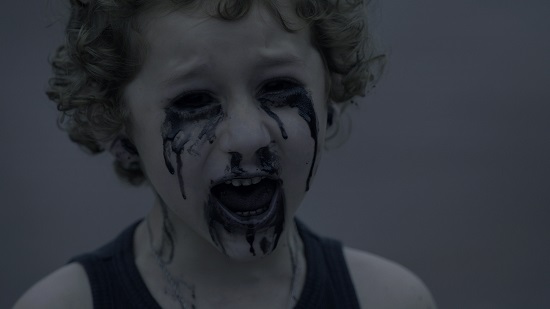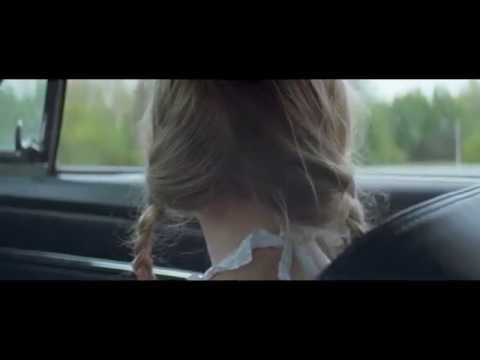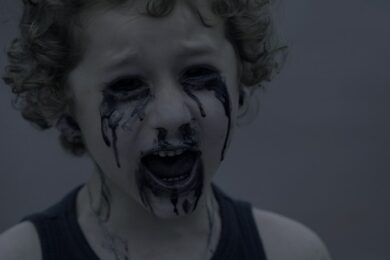It is perhaps convenient to ignore GrimmFest. A smaller, more northern affair spread across four days, hidden away in one screen, designed for a small, faithful group of genre enthusiasts. To the benighted, it’s yet another festival celebrating the low art of nauseating people for excess’ sake. In its 8th year, however, Grimmfest quietly reminds us of the importance horror cinema has as an astute social barometer, choosing to traverse ground more intellectually arousing than one would assume, which can largely credited to a series of bold choices in curation. GrimmFest mixed revenge thrillers with body horrors and a smorgasbord of genre pieces in a way not to dissimilar from FantasticFest. If horror, as Linnie Blake described, is a genre fascinated with bandaging up our oldest social wounds, then GrimmFest seeks to pick the scabs that remain.
Uniting the 20+ feature films shown over the course of the weekend was the thematic thread of modern anxieties. From the violent destruction of the nuclear family to the ways technology makes sp implicit in toxic voyeurism, Simeon Halligan and the rest of the Grimm Up North team have sought to highlight millennial talent and bring their fears to forefront.
Missed opportunity, the Marilyn Manson featuring Let Me Make You A Martyr was a frustrating re-imagining of the revenge Western and provided the weekend with its first glimpse of modern discomfort. Shot handsomely on 16mm, the film weighs down its striking Oklahoma backdrop with a sense of malaise. These shots, almost soured by the recession, implore you to look deeper into their grim nooks and crannies. Whilst it’s a shame that what’s foregrounding these shots isn’t as captivating Let Me Make You A Martyr, suggests that the finger should be pointed at our parents for the ruins the film so compellingly frames. The film seems to suggest that these tensions and traumas being passed between generations is a one way street, which cannot be reconciled by the different groups without the crutch of violence. Directors Corey Asraf and John Swab frequently condemn the older generation for their inability to dealign themselves from the toxicity of their own archaic morals — the film deals in an economy in which malice is worse than murder. The film plods along, using a palpable sense of emotional nastiness as fuel to both the narrative and the way characters interact with each other. The only tonic Asraf and Swab present are the scraps of morality protagonists Drew and June use to guard themselves. The title acts as a sadistic call to arms. The horror here lies in the expected submission of younger generations at the hands of forefathers and the futility of attempting to re-center your moral compass.
Inherited guilt follows our youth into the next film, Geoff Redknap’s The Unseen, a deliberate riff on The Invisible Man which has been aptly appropriated to suit a narrative of alienation. Whilst the film closely follows Bob (Aden Young) it’s his daughter, doe-eyed Eva (Julia Sarah Stone), that has to grapple with the inherited disease of invisibility. Whilst admittedly the film struggles to incorporate its fantasy narrative within the confines of a more realistic social context, the elaborate metaphor for social alienation is pulled off with gusto. Again, the younger generation are the inheritor of something more painful than their elders could bear and are expected to come to peace with it before it eventually kills them. The scenes Eva dominates positions her as representative of the youth of her time, unsure and lonely in equal measures.She spends her days exploring abandoned locations created by the babyboomers and waiting for her invisibility to eat her. Whilst Redknapp’s choice of soundtrack often excavates more subtle themes with blunt force, the narrative of being swallowed up by a society that won’t facilitate understanding becomes more and more unnerving.
This self-abnegated misery becomes the crux of Joseph Sims-Dennett’s Observance and it’s power to both shock and stimulate. With shots designed to echo Zulawski’s masterpiece Possession, Observance is a muddy tale of the relationship between the watcher and the watched anchored by the insidious role technology can play. Combining both biological and psychological horror, Sims-Dennet’s talent lies in his ability to restrain the most horrible of his impulses. Parker (Lindsay Farris) is hired to watch a young woman from across the road in her flat. He is repeatedly instructed to “just watch and report” and advised to make little contact with her, even as his psyche begins to deteriorate. Sims-Dennet ensures no characters communicate without technology as a mediator. People are watched, their decisions subject to the audience’s inference. Soon Sims-Dennet makes us implicit in both the emotional and physical voyeurism, forcing us to weave secular strands of logic together to create a cohesive, subjective narrative. In doing so, the internal act of voyeurism becomes indistinguishable to the patterns that form in social media stalking, creating narrative’s for people we met once. The pleasure of technological voyeurism to understand our own lives is what leads Parker to his nervous breakdown. The world technology creates and sustains is seen as just as damaging to us as the inherent trauma in both The Unseen and Let Me Make You A Martyr – although in Observance, pain becomes a self inflicted pastime rather than an unfortunate inheritance.
However, it’s pandemic fiction flick What We Become that left audiences with the bleakest outlook of the future. Making the wise decision to not re-work the tired zombie genre but instead re-approach it, What We Become watches the genre from a more sociologically minded vantage point. Concerning with how a well off suburban family deals with the apocalypse, Bo Mikkelsen showcases the end of the world from a youthful perspective. Embracing the distrust of authority that has become a central tenet of horror, Mikkelsen frames the central teen romance with uncommon dignity. Whilst most of the adults begin deteriorating, killing or maiming, their children are left to establish a sense of order from the fallout.
Instead of repelling me, GrimmFest brought me closer to a genre that has become marred by sequels and poor imitations to deliver something genuinely provoking. The prevailing mood is one of concern, depicting millennials unable to navigate a world left in tatters. It would be fair to say these anxieties aren’t unique to our era, but larger symptoms of modernity as a whole. Perhaps this explains the continued privileging of the horror form and the deviation in content between eras. It seems that with the generational baton being relayed on, not just talent but trauma has been passed down, which GrimmFest gleefully celebrates.




